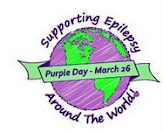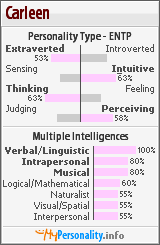 Back in the days of grad school, I took a Chaucer class. My area of specialty was Renaissance Drama with an emphasis on the portrayal of the "Moor" in the Early Modern period. Chaucer belongs to the High Middle Ages, but I felt the need to delve into the work of the best known medieval writer in order to examine the depiction of the Islamic Other in Middle English literature. What better way to trace the evolution of an idea than to start at its root?
Back in the days of grad school, I took a Chaucer class. My area of specialty was Renaissance Drama with an emphasis on the portrayal of the "Moor" in the Early Modern period. Chaucer belongs to the High Middle Ages, but I felt the need to delve into the work of the best known medieval writer in order to examine the depiction of the Islamic Other in Middle English literature. What better way to trace the evolution of an idea than to start at its root?While I found the readings tolerable, the tapestry of Chaucer's world and the colorful threads that informed his work interested me much more than his poetry. My professor had a penchant for medieval medicine and was especially interested in the advances made in the Islamic world; I wanted to see how those Islamic medical practitioners were portrayed in the literature of the time. We were a match made in heaven.
Although often overlooked in the Western world, much of what we now take for granted in the medical field began in the Islamic world. Hospitals, for example, are among the greatest achievements of the early Islamic culture (see National Library of Medicine's "Islamic Culture and the Medical Arts" for further details). During the course of collecting research for a paper that I wrote for the Chaucer class, I learned a great deal about the Islamic hospital system:
- Hospitals were divided into wards according to illnesses, with patients who had contagious diseases separated from others.
- In 872, the first hospital known to identify and treat mental illness was built and operating in Cairo, Egypt.
- Physicians who treated patients in hospitals were required to pass competency examinations.
- I could add dozens more bullets to this list, but you can read more about the topic from any of the articles located here.
One of the most interesting things that I discovered was the emphasis that Islamic physicians placed on the connection between emotional and physical well-being. Patients in these early Islamic hospitals were visited by people whose only job was to provide positive feedback for the purpose of boosting the patients' sagging spirits. For example, a small group posing as doctors, nurses, or even visitors, would pass by the bed of a patient and make comments such as "Look at how much rosier his complexion is today!" or "The swelling on her cheek is really getting smaller!" or "That incision is healing quite nicely!" or "When eyes shine as brightly as hers do, we know that a patient is healing well." No matter how unpleasant the wound or symptom and irrespective of the gravity of the illness, these traveling do-gooders were forbidden from making any negative comments. And although some of the commentary would be classified as white lies, physicians noted its positive effects on patients.
I can personally attest to the benefit of hearing positive comments such as those used in the early Islamic hospitals. On days when sleep has been especially elusive, I know that my eyes are red, weepy, and swollen, and that I look every bit as horrible as I feel. With nary a prompt from me, Ali will say something about how my eyes look much better than they did a day or two before. He may gloss over the reality of my appearance but in doing so, he also eases my emotional distress. It's become a joke between us that if I want to know how I really look, I need to ask our daughter because she pulls no punches. I'll take Ali's compassionate white lies over Iman's brutal honesty almost any time!
Yesterday, a two sentence email from my neurologist asking how I'm doing had the same uplifting effect on my psyche. I've had a tough week thanks to seizures and headaches, so her message couldn't have come at a better time. I'll have to ask Dr. S if she knows about Islamic medicine because she sure has the same level of compassion required of early Islamic physicians.



















I'm sorry you're not feeling great this week. The info on the Islamic doctors using positive speech to improve healing is very interesting. It makes sense, though, our minds are so much more powerful than we typically give them credit for.